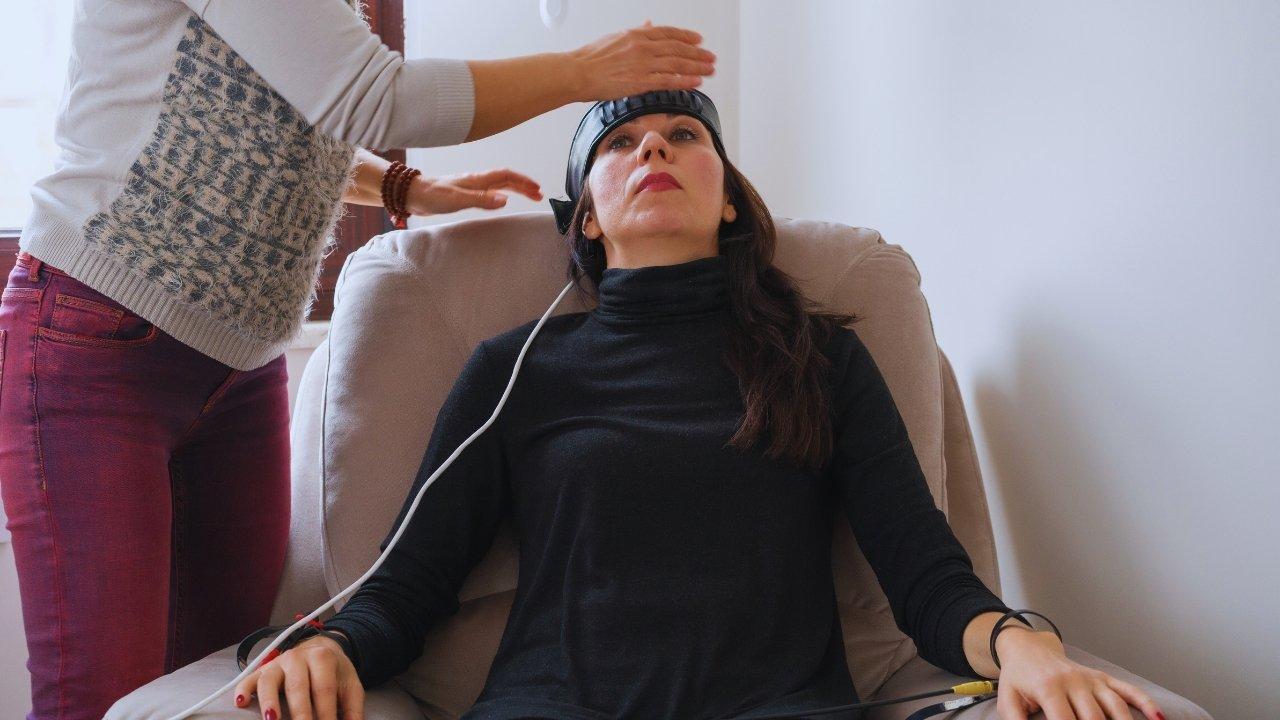You have not yet added any article to your bookmarks!

Join 10k+ people to get notified about new posts, news and tips.
Do not worry we don't spam!

Post by : Anis Farhan
Neuro-wellness is the art and science of maintaining a healthy brain through mental, emotional, and physical well-being. It goes beyond preventing neurological disorders—it’s about optimizing the brain’s performance, resilience, and adaptability.
In the past, discussions around wellness mostly focused on physical health and appearance. But today, as people struggle with burnout, digital fatigue, and cognitive overload, the mind has emerged as the new frontier of self-care. The idea is simple yet profound: by nurturing the brain, we can improve focus, creativity, mood, and even our lifespan.
Modern neuroscience confirms that the brain has incredible plasticity—it can reorganize, repair, and grow throughout life. This adaptability, known as neuroplasticity, is the foundation of the neuro-wellness movement.
Despite our growing understanding of mental health, our daily habits often work against it. Chronic stress, sleep deprivation, processed diets, and information overload have become constant companions in modern society. These factors collectively affect our brain’s structure and function.
Stress and Cortisol Overload: Constant exposure to stress hormones can impair memory, slow learning, and lead to anxiety or depression.
Digital Dependency: Endless scrolling and multitasking reduce attention spans and create mental fatigue.
Poor Sleep Hygiene: Irregular sleep disrupts the brain’s natural detox system, affecting concentration and emotional balance.
Inflammation and Nutrition Deficiency: Diets high in sugar and trans fats can damage neurons and reduce cognitive flexibility.
Understanding these challenges is the first step toward a proactive approach to brain care.
The food we eat directly impacts the brain’s performance. Neuro-nutrition—an emerging field linking diet to cognitive health—emphasizes nutrients that fuel neurons and protect them from oxidative stress.
Omega-3 Fatty Acids: Found in fatty fish, walnuts, and flaxseeds, they improve memory and support neuronal communication.
Antioxidants: Blueberries, dark chocolate, and leafy greens protect against cell damage and inflammation.
B Vitamins: Crucial for energy production and neurotransmitter synthesis, helping regulate mood and focus.
Magnesium and Zinc: Essential minerals that stabilize nerve function and prevent fatigue.
Polyphenols: Present in green tea and olive oil, they promote brain plasticity and longevity.
Many researchers now refer to the gut as “the second brain,” highlighting the gut-brain connection. A balanced gut microbiome contributes to the production of serotonin and dopamine—key chemicals influencing mood and cognition.
Just as physical workouts strengthen the body, cognitive exercises strengthen the mind. Cognitive fitness involves engaging the brain in activities that challenge and expand its capacity.
Learning New Skills: Picking up a language, instrument, or craft stimulates multiple brain regions.
Strategic Games: Chess, puzzles, and memory games improve concentration and problem-solving abilities.
Reading and Storytelling: Regular reading enhances imagination and comprehension, while storytelling strengthens communication and emotional understanding.
Mindful Reflection: Journaling and meditative thinking reinforce focus and emotional regulation.
Modern neuroscience supports these activities as protective measures against cognitive decline, dementia, and memory-related conditions.
Mindfulness is one of the most studied and effective neuro-wellness tools. Regular meditation has been shown to increase gray matter density in areas responsible for memory, empathy, and emotional regulation.
Meditation encourages neurogenesis—the formation of new brain cells—and strengthens the prefrontal cortex, which governs decision-making and impulse control. Even just 10 minutes of mindfulness practice daily can lower stress hormones and improve attention span.
Breathing exercises, yoga, and progressive relaxation are complementary tools that support mindfulness. Together, they help the brain stay calm and centered amid life’s chaos.
Sleep is not merely rest—it’s the brain’s housekeeping time. During deep sleep, the brain clears toxins, consolidates memories, and rejuvenates its networks. Chronic sleep deprivation, on the other hand, affects reasoning, creativity, and emotional stability.
Experts recommend:
7–9 hours of sleep per night for adults.
Consistent sleep schedules that align with natural circadian rhythms.
Screen-free time at least an hour before bed to reduce blue-light interference.
The rise of sleep-tracking devices and smart mattresses indicates growing awareness of sleep’s role in cognitive fitness. However, quality still outweighs quantity—deep, uninterrupted rest matters most.
Technology has a double-edged relationship with neuro-wellness. On one hand, constant notifications and multitasking drain attention. On the other, new tech innovations are transforming brain health management.
Neurofeedback Devices: These train users to regulate brain waves and manage stress.
Cognitive Training Apps: Platforms that offer games and exercises to improve memory and focus.
Wearable EEG Headsets: These monitor brain activity to support meditation and productivity.
The key is moderation. Using technology consciously—rather than reactively—can enhance mental agility without causing cognitive fatigue.
Emotional well-being is inseparable from neuro-wellness. Chronic emotional stress reshapes brain circuits, but nurturing positive emotions strengthens mental resilience.
Practices like gratitude journaling, compassion exercises, and emotional awareness training have been scientifically proven to increase happiness hormones such as dopamine and oxytocin. These, in turn, improve neural efficiency and enhance cognitive performance.
Emotional intelligence—the ability to understand and manage one’s feelings—has also become a cornerstone of cognitive wellness. It supports better decision-making, creativity, and interpersonal relationships.
Perhaps the most empowering concept in neuroscience is neuroplasticity—the brain’s ability to rewire itself. Contrary to old beliefs, our mental capacity doesn’t peak in youth. The brain can grow and adapt at any age through learning, movement, and experience.
Practices that enhance neuroplasticity include:
Regular aerobic exercise
Continuous learning
Mindful meditation
Creative expression
Positive social interactions
Every time we challenge ourselves, the brain creates new pathways. Neuroplasticity proves that self-improvement is always possible—our brains are works in progress, not fixed entities.
Neuro-wellness doesn’t require drastic changes; it’s about consistent, mindful actions that build long-term brain health.
Morning Movement: Even 20 minutes of exercise boosts blood flow to the brain.
Balanced Meals: Combine protein, fiber, and healthy fats to sustain energy.
Mindful Breaks: Take 5-minute pauses to breathe deeply and refocus.
Continuous Learning: Engage in reading, online courses, or creative hobbies.
Nightly Digital Detox: Reduce screen time before sleep for better rest.
These small habits compound into powerful results over time—creating sharper minds and calmer moods.
As awareness grows, the neuro-wellness industry is merging science, technology, and holistic health. From brain-boosting supplements to AI-guided meditation platforms, innovation continues to redefine mental fitness.
In coming years, we may see personalized neuro-wellness plans based on brain scans and genetic profiles. Virtual reality therapy and cognitive wearables will likely play bigger roles in mental healthcare, making proactive brain health more accessible to everyone.
Yet, the essence of neuro-wellness will remain timeless—balanced living, mindful awareness, and emotional harmony.
Neuro-wellness is more than a health trend—it’s a philosophy for living smarter, calmer, and more consciously. As life grows more complex, caring for the brain becomes a lifelong responsibility. By combining nutrition, mindfulness, movement, and rest, we can nurture our most powerful organ—the one that shapes every thought, emotion, and decision.
In embracing neuro-wellness, we invest not only in a healthier mind but in a more fulfilling, creative, and connected life.
This article is for informational and educational purposes only. It should not replace medical diagnosis or professional advice. Always consult a qualified healthcare provider before making significant lifestyle or neurological health changes.










Study Warns Using AI for Medical Advice Is ‘Dangerous’ as Users Get Inaccurate Health Guidance
A major new study reveals that artificial intelligence (AI) chatbots and tools may give misleading o

Top Sci-Fi Movies Streaming on Netflix This February: Must-Watch Picks for Genre Fans
A curated news-style guide to the best science fiction films currently available on Netflix in Febru

BCCI Central Contracts Shake-Up: Kohli, Rohit Moved to Grade B as Board Reshapes 2025–26 List
Virat Kohli and Rohit Sharma have been placed in Grade B in the BCCI’s 2025–26 central contract list

Dalal Street Spotlight: Top 10 Stocks Investors Are Watching as Markets Open on a High
Indian stock markets begin the week with strong momentum, and several blue-chip and mid-cap stocks a

Market Movers Today: Key Stocks Set To Watch In Indian Markets
Indian equity markets are poised for active trading as several major companies, including Bharti Air

Milan Welcomes the World: Inside the Grand Opening Ceremony of the 2026 Winter Olympics
The 2026 Winter Olympics opening ceremony in Milan marked a defining moment for global sport, blendi